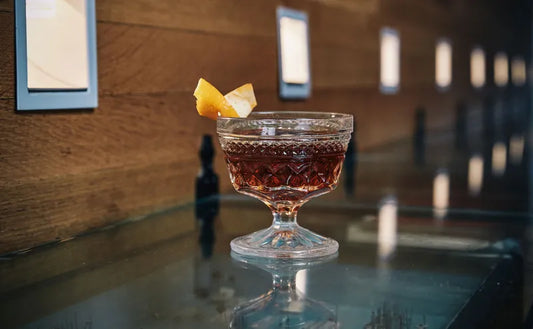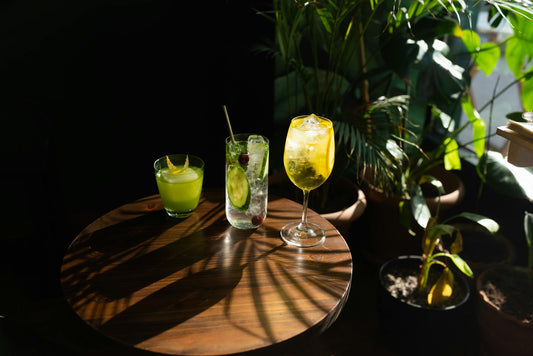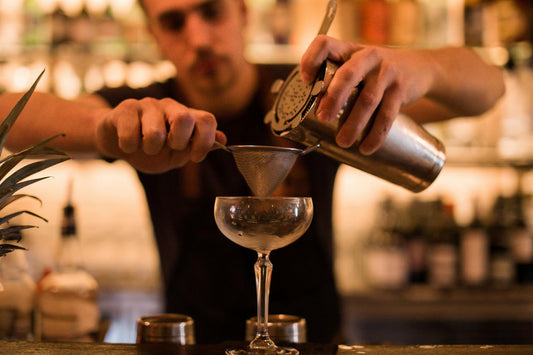Old Friend Cocktail: A Refreshing Blend of Gin & Grapefruit
SWEET to SOUR
(1-10)
STRENGTH
(1-10)
CALORIES
STANDARD
DRINKS
Note: these values are approximate and may vary dependent on the ingredients and brands you use.
More information...
The Old Friend cocktail is a delightful concoction that embodies a refreshing blend of flavors, making it a perfect choice for those who appreciate a well-crafted drink. This cocktail features a harmonious mix of Hayman's London Dry Gin, freshly squeezed pink grapefruit juice, Strucchi Red Bitter, and elderflower liqueur, creating a drink that is both vibrant and sophisticated.
At the heart of the Old Friend is Hayman's London Dry Gin, a spirit known for its classic botanical profile. This gin provides a crisp and clean base, allowing the other ingredients to shine. The addition of freshly squeezed pink grapefruit juice introduces a zesty and slightly tart element, which balances beautifully with the sweetness of the elderflower liqueur. The elderflower liqueur adds a floral note that elevates the drink, giving it a unique character that is both refreshing and aromatic.
Strucchi Red Bitter, reminiscent of the famous Campari, adds a layer of complexity to the cocktail. Its bittersweet flavor profile contributes depth and a hint of bitterness that contrasts with the sweetness of the elderflower liqueur and the tartness of the grapefruit juice. This interplay of flavors is what makes the Old Friend so intriguing; it dances on the palate, offering a delightful experience with each sip.
The preparation of the Old Friend is as elegant as its taste. The cocktail is shaken with ice, which not only chills the drink but also dilutes it slightly, ensuring a smooth texture. After shaking, the mixture is fine strained into a pre-chilled Coupe glass, which adds a touch of sophistication to the presentation. The final flourish is the expression of grapefruit zest over the cocktail, releasing essential oils that enhance the aroma and add a visually appealing garnish. This attention to detail in both preparation and presentation is what sets the Old Friend apart from other cocktails.
With an alcohol content of 19.31% alc./vol., the Old Friend is a potent yet balanced drink. It contains approximately 1.8 standard drinks, making it a suitable choice for a relaxed evening or a celebratory occasion. The cocktail's caloric content is around 168 calories, which is relatively moderate compared to many other cocktails, allowing you to indulge without too much guilt.
The taste profile of the Old Friend ranges from sweet to dry-sour, making it versatile for various palates. Those who enjoy a sweeter drink will appreciate the elderflower liqueur, while those who prefer a more tart experience will find the grapefruit juice and bitter notes to their liking. This balance makes the Old Friend an excellent choice for gatherings, as it can cater to a wide range of preferences.
In conclusion, the Old Friend cocktail is not just a drink; it is an experience that brings together a medley of flavors and aromas. Its combination of gin, grapefruit, bitter liqueur, and elderflower creates a refreshing and complex cocktail that is sure to impress. Whether you are enjoying it at a bar or crafting it at home, the Old Friend is a drink that invites conversation and camaraderie, making it a perfect companion for any social occasion.



